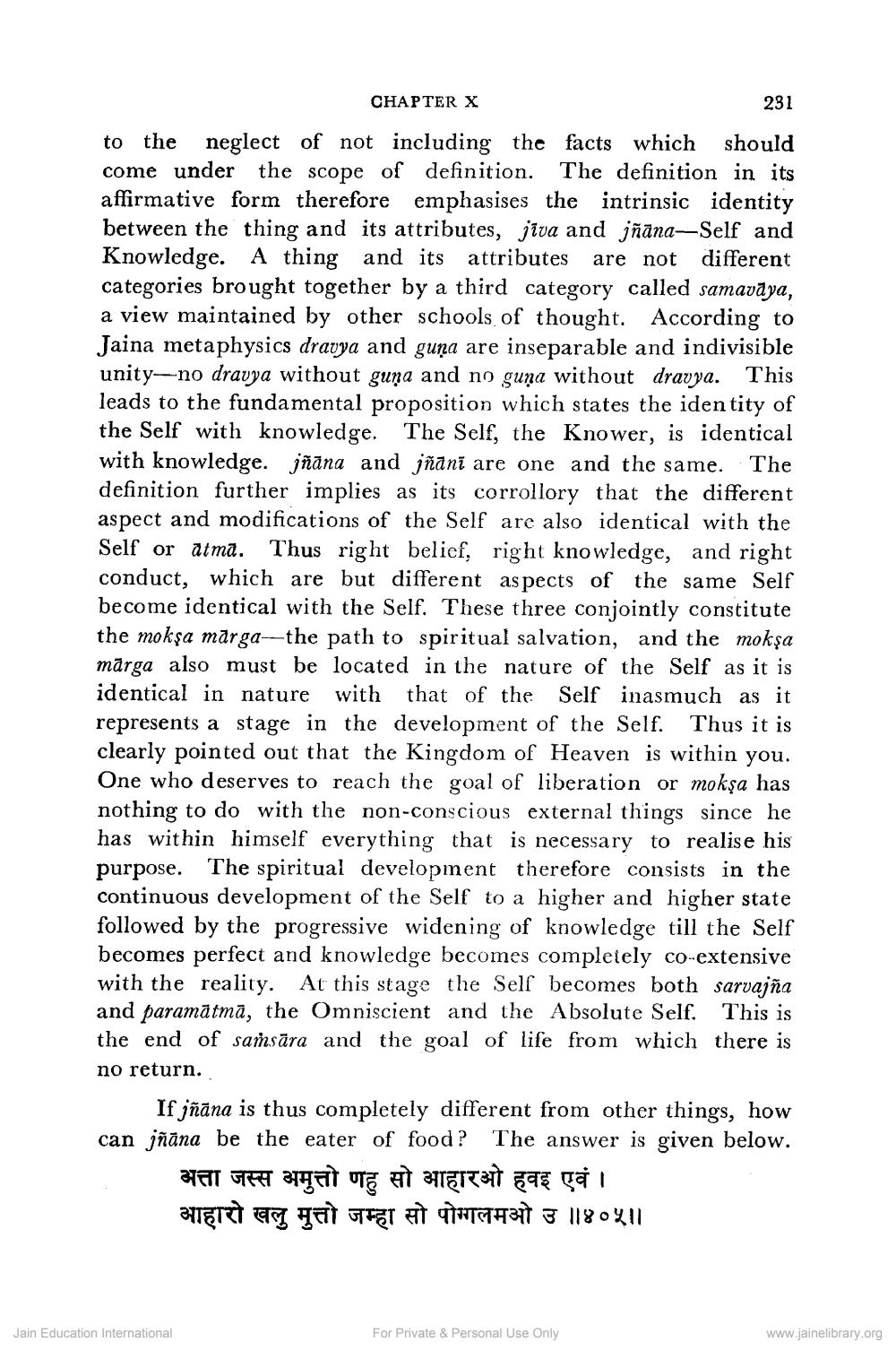________________
CHAPTER X
231
to the neglect of not including the facts which should come under the scope of definition. The definition in its affirmative form therefore emphasises the intrinsic identity between the thing and its attributes, jīva and jñāna-Self and Knowledge. A thing and its attributes are not different categories brought together by a third category called samavāya, a view maintained by other schools of thought. According to Jaina metaphysics dravya and guņa are inseparable and indivisible unity--no dravya without guna and no guna without dravya. This leads to the fundamental proposition which states the identity of the Self with knowledge. The Self, the Knower, is identical with knowledge. jñāna and jñānī are one and the same. The definition further implies as its corrollory that the different aspect and modifications of the Self are also identical with the Self or atma. Thus right belief, right knowledge, and right conduct, which are but different aspects of the same Self become identical with the Self. These three conjointly constitute the moksa marga--the path to spiritual salvation, and the moh mārga also must be located in the nature of the Self as it is identical in nature with that of the Self inasmuch as it represents a stage in the development of the Self. Thus it is clearly pointed out that the Kingdom of Heaven is within you. One who deserves to reach the goal of liberation or mokşa has nothing to do with the non-conscious external things since he has within himself everything that is necessary to realise his purpose. The spiritual development therefore consists in the continuous development of the Self to a higher and higher state followed by the progressive widening of knowledge till the Self becomes perfect and knowledge becomes completely co-extensive with the reality. At this stage the Self becomes both sarvajña and paramātmā, the Omniscient and the Absolute Self. This is the end of saṁsāra and the goal of life from which there is no return.
If jñāna is thus completely different from other things, how can jñāna be the eater of food? The answer is given below.
अत्ता जस्स अमुत्तो णहु सो आहारओ हवइ एवं । आहारो खलु मुत्तो जम्हा सो पोग्गलमओ उ ॥४०॥
Jain Education International
For Private & Personal Use Only
www.jainelibrary.org




